Amrai Pari Paribarik Nirjaton Protirodh Jot (WE CAN)
REPORTS
AMRAI PARI ANNUAL REPORTS
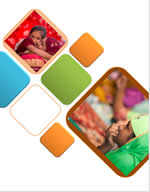
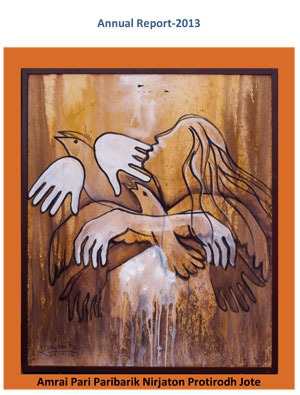
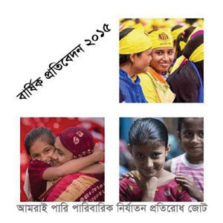
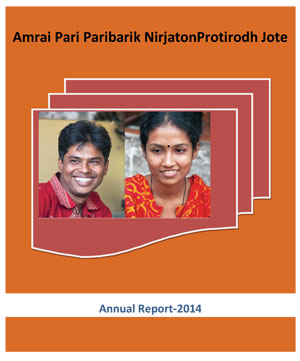
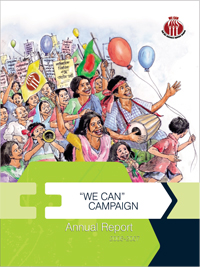
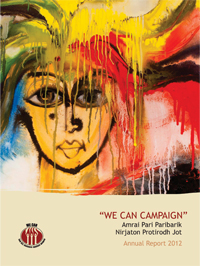
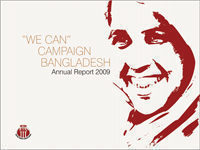
AMRAI PARI ANNUAL REPORTS






WE CAN REPORTS

WE CAN A Model of Behavioural Change Concerning Violence Against Women Bangladesh Report

The We Can Campaign in South Asia, 2004-2011 External Evaluation Report

We Can Bangladesh Effectiveness Review Full Technical Report

PROJECT EFFECTIVENESS REVIEWS. enhancing effectiveness through evidence-based learning
ACKNOWLEDGEMENT OF AMRAI PARI
- Amrai Pari wins as Finalist in an International Communications Competetion by The George Washington University, USA. Publications of WE CAN have been uploaded in Global Forum website: http://xchange.gwu.edu/library?submissions=true
- According the Research findings ``Measuring Changes in South Asia" on Change Makers from five different countries including Bangladesh have found that the method has able to bring change in human behaviour which is important to resist Violence against Women. We Can Bangladesh Effectiveness Review[1] a comparative study have found that the collective efforts in implementing areas are significant then non intervened area. In the World Bank report[2] (Violence against Women and Girls: Lessons from South Asia by Solotaroff, Jennifer L.; Pande, Rohini Prabha of World Bank in 2014.) WE CAN is appreciated a successful programme in Bangladesh to end VAW and DV. In 2014 a research based programme funded by Netherlands Embassy, Bangladesh name SAFE[3] has been conducted by the lead of ICDDR,B and Population Council and 3 implementing organisations including Amrai Pari involved in the programme. It was also assumed that multiple sources of support for survivors of spousal VAWG would be necessary to increase women and Girls agency and promote help seeking behaviours. (Naved RT, Amin S. Impact of SAFE intervention on sexual and reproductive health and rights and Violence against women and girls in Dhaka slums)[4]
- In National Action Plan on Preventing VAWG 2013-2025[5] (page 19), Ministry of Women and Children Affairs, Government of Bangladesh, considered WE CAN campaign a very effective initiative in Bangladesh.
About Us
Amrai Pari Paribarik Nirjaton Protirodh Jot (WE CAN) is a collective platform of civil society, organizations, individuals, institutions and others aim of ending violence against women.
Keep In Touch
Amrai Pari (WE CAN) Secretariat
6/4 A, Sir Sayed Road (2nd Floor)
Mohammadpur, Dhaka-1207 Bangladesh
Tel: +88 02 41023217
E-mail: [email protected]
Web: www.wecan-bd.org
Copyright © 2018 All Rights Reserved By We Can Bangladesh
About Us
Amrai Pari Paribarik Nirjaton protirodh Jot (WE CAN) is a collective platform of civil society, organizations, individuals, institutions and others aim of ending violence against women.
Keep In Touch
Amrai Pari (WE CAN) Secretariat
6/4 A, Sir Sayed Road (2nd Floor)
Mohammadpur, Dhaka-1207 Bangladesh
Tel: +88 02 41023217
E-mail: [email protected]
Web: www.wecan-bd.org
Copyright © 2018 All Rights Reserved By We Can Bangladesh
